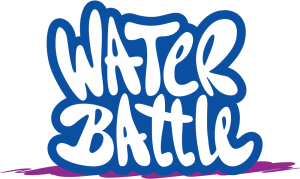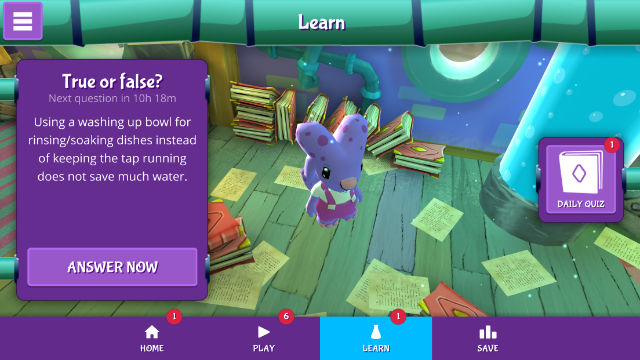If you want to teach someone to save water, you will have to change his or her behavior. The more accustomed someone is to certain behaviors, the more difficult that is. It, therefore, makes sense to teach children more water conservation at an early age. By learning this early on, children take this behavior with them for the rest of their lives, making it a sustainable way to combat water waste. Serious games are an effective method to do this. How can you teach children to save water with games? In this article, we explain how it’s done.
Let’s start with the definition of serious games. Serious games are games with a more important purpose than just entertainment. The games help to transfer knowledge in a playful way, motivate people or even change their behavior.
Sometimes a certain behavior change is not fun at all to maintain. And in the case of water consumption and water saving, you might think: is that really necessary? There is enough water, isn’t there? Yet not everyone realizes that if everyone steps into the shower at the same time, the water pumps of water companies work overtime and waste a lot of energy. In addition, in some areas or some periods there is actually a drought. So it can happen that no water comes out of the tap, even in the Netherlands!
Next, awareness is needed about the consequences of wasting energy water?. Only then will people perhaps be prepared to change. With serious games, this message can be conveyed in a playful manner.
With young children, it is less about behavioral change, but more about behavioral formation. Despite the fact that they already pick up habits from their environment; they are still much more open-minded. Just as for changing behavior, serious games are also effective as a stimulus for children to learn. Curious why? Read on quickly!
Games are already part of a child’s life
Did you know that 70% of the youth under 18 plays games regularly? This generation has grown up with games. At home, at school or with friends: almost everyday children come into contact with games. While games are also effective for adults, a child knows how games work and it is a very accessible way for them to learn something new.
Another added benefit is the flexibility that games offer. They can be played anytime, anywhere and a child does not find it annoying to play a game in the evening. Also, children can work independently with serious games; no teacher or parent needs to be present to help the child.
Games are attractive and easy to understand
Serious games are attractive because they are visually appealing. During the development of a serious game, a lot of time is spent thinking about and drawing the game world, characters and interface. This appeals to the imagination of children and helps hold their attention while playing.
Second, in serious games, the message (such as learning about water conservation) is incorporated into an interactive game story. This reduces the amount of text needed to convey the knowledge and makes it easier to understand. A child has to complete various challenges, listen to dialogues with characters, and complete levels. During this process, he or she learns more about water consumption. This is a lot easier for a child than reading a long story about how water pumps work and why they consume excessive energy during peak hours, for example.
Playing games together to save water is motivating
There is a lot to tell about how a water company works and how to use water sustainably. You can’t convey all this knowledge in one or two hours. Fortunately, serious games ensure a high level of involvement, which makes someone want to spend a long time working on water saving. One of the techniques for keeping people motivated in games is that you can play together.
You can see this effect in the Water Battle. Children play the game, but the whole family is involved in the game. While children play the game and complete different levels, parents must make water-saving changes to their homes and measure their water consumption. When the parents meet their water conservation goal, they earn points and help their child accelerate the game progress. This interaction keeps the children and their parents motivated to keep playing the game.
Games are fun!
Games are just fun! Serious games are developed to fit the target group and use game mechanics to intrinsically motivate the target group. In games, a player follows a constant loop of challenges and rewards (such as points and unlocking achievements). Once one challenge is completed, the player is motivated to start working on the next one immediately.
Would you like to know more about the Water Battle? Please feel free to contact us!


